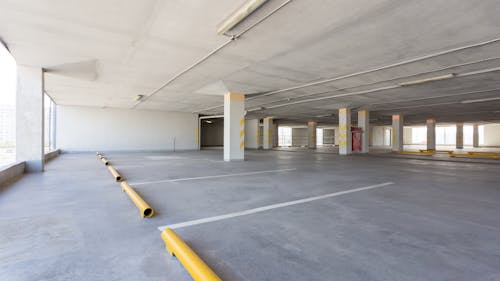'Heat islands': U. research finds pitfalls in parking lot requirements in residential areas

A recent Rutgers Center for Real Estate (RCRE) report concluded that current state standards inflate the amount of parking spaces needed in new residential developments.
The report is part of a series of RCRE white papers that seek to set an educational framework for accurate issues in the real estate industry.
The need for parking per unit in low-rise apartment complexes is more than 50 percent lower than the current requirement, according to the report. The cost of constructing such parking is high, with RCRE estimating that a development project will spend nearly $3 million on approximately 100 overbuilt parking spaces.
"The major conclusions are that we have a regulatory framework that overestimates and overrequires parking demands and parking needs. And therefore results in unnecessary parking being built," said Debra Tantleff, a member of the Executive Committee at RCRE and an author of the report.
She said researchers obtained approximately 30,000 units of data from surveys to reach their findings and also compared this data with results from the U.S. Census to analyze trends. Tantleff said they also found that population density is one possible explanation for the lack of need for parking spaces.
"When you have a lot more population density, you have a lot more access to mass transit because the critical mass is there for the transportation systems to function," she said.
The researchers suggested that the state's current regulations should be changed to better reflect reality.
"The (car-to-parking spot) ratios required for each individual unit can and should be revisited and reduced," Tantleff said.
The report posits that a reduction in mandated parking requirements for residential developments causes construction and operation costs to decrease, possibly allowing for rents to be reduced.
The benefits of reduced parking requirements are not purely economic, according to the report. Less parking spaces may make residents more inclined to take public transport or ride-sharing services, cutting down on the emissions a car would otherwise release, the report read.
Parking surfaces have a negative environmental impact, as they change rainwater runoff and are called "heat islands." Parking garages, commonly used in high-rises, are a significant contributor to carbon dioxide emissions, according to the report.
For new developments, Tantleff said the existing conditions of a community should determine parking lot requirements.
"(This paper) is looking at the overall density and critical mass within a low-rise community as opposed to a high-rise community, and the actual parking demand that exists in those communities — and therefore (determines) what really needs to be built," she said.
Tantleff cited a bill in the state legislature that seeks to reduce parking requirements in areas with access to public transit, which would take effect immediately. The bill passed the Senate voting committee in May and will wait to be heard by the House.
"The long-term potential result of this (study) is that the residential site improvement standards for new housing communities are revisited," she said.



